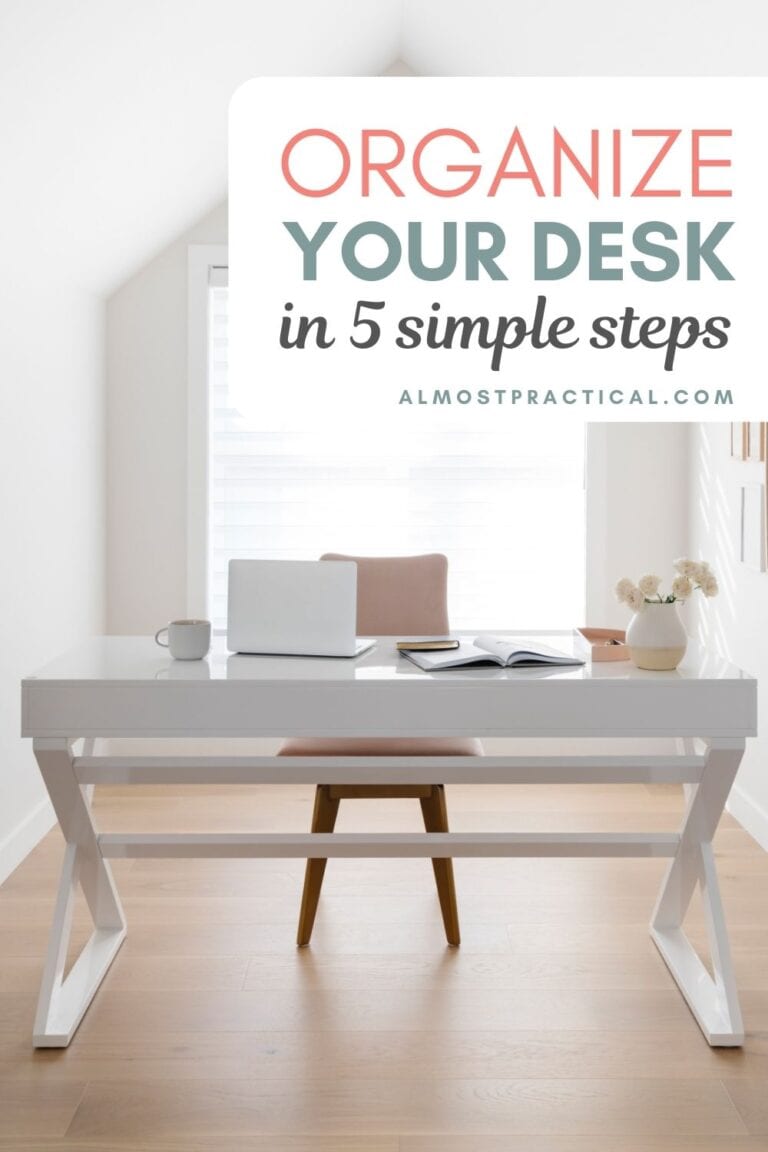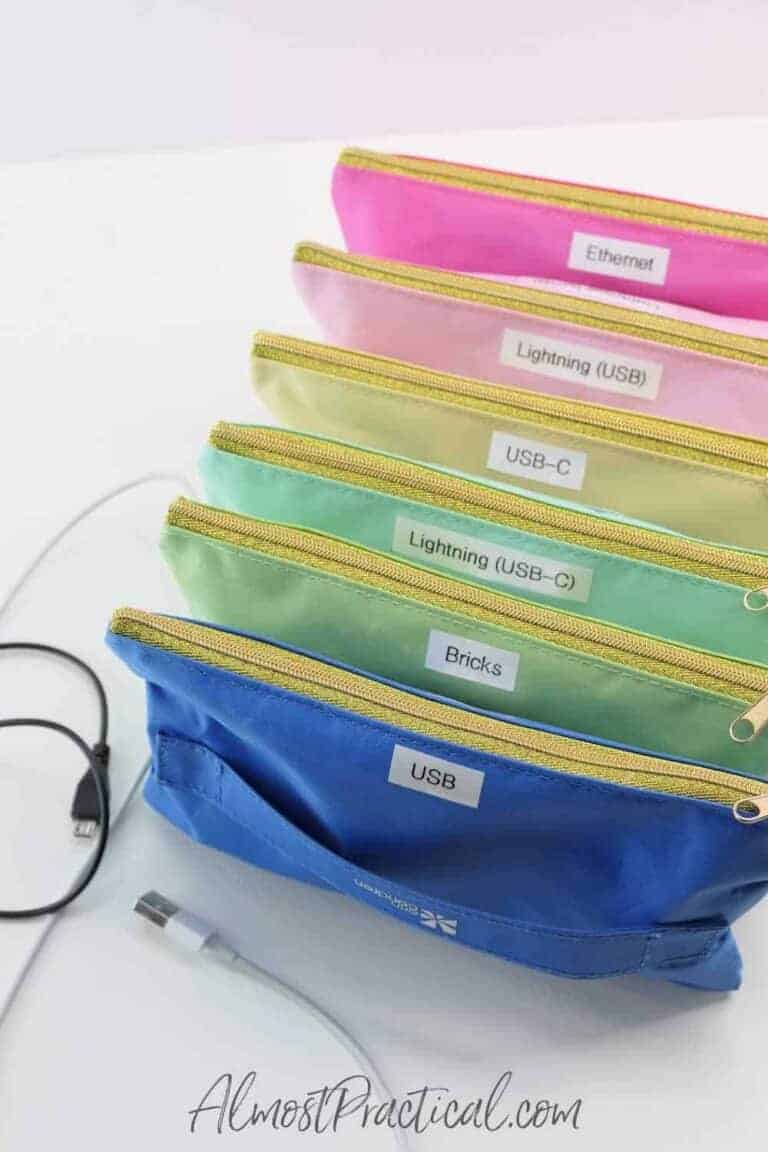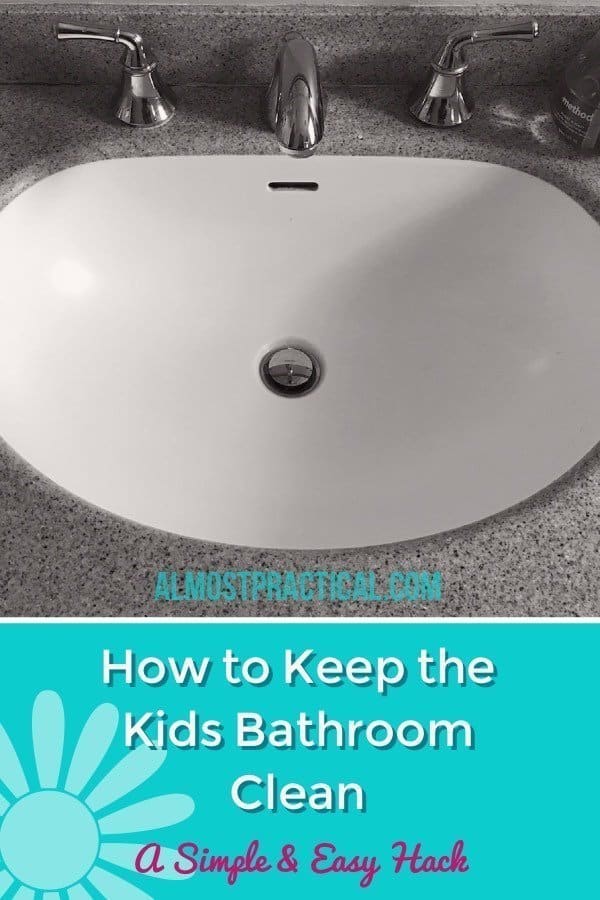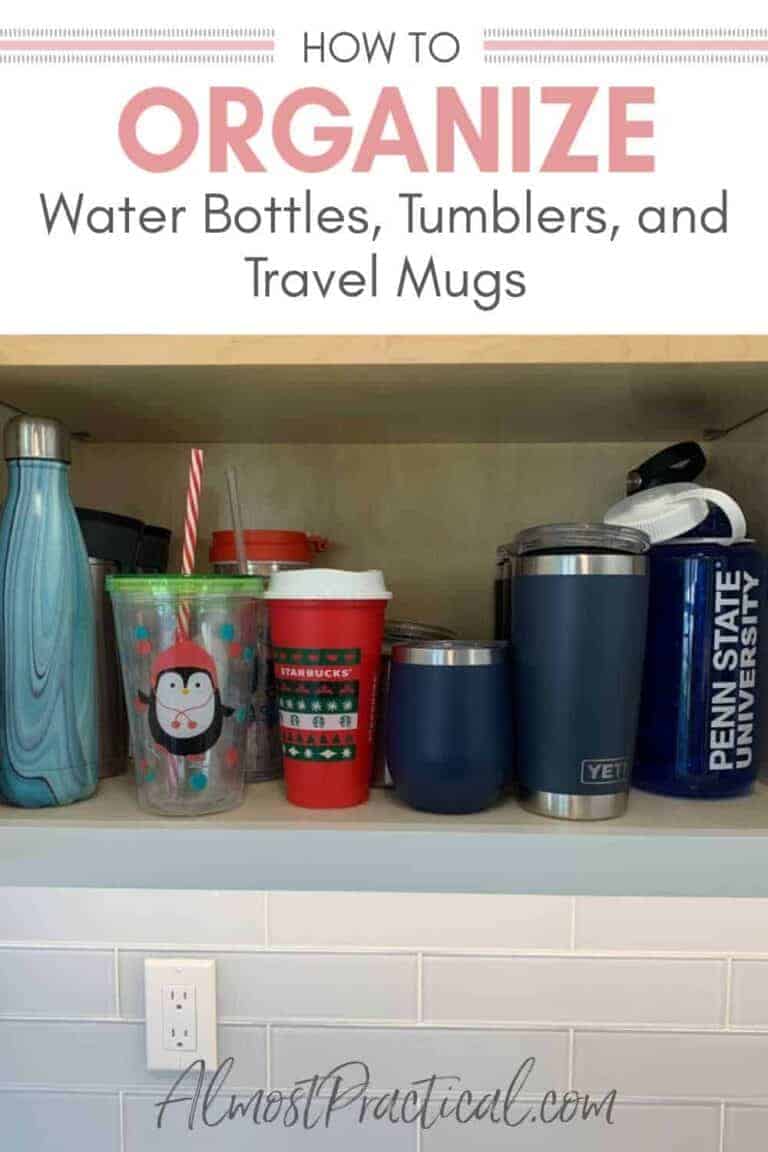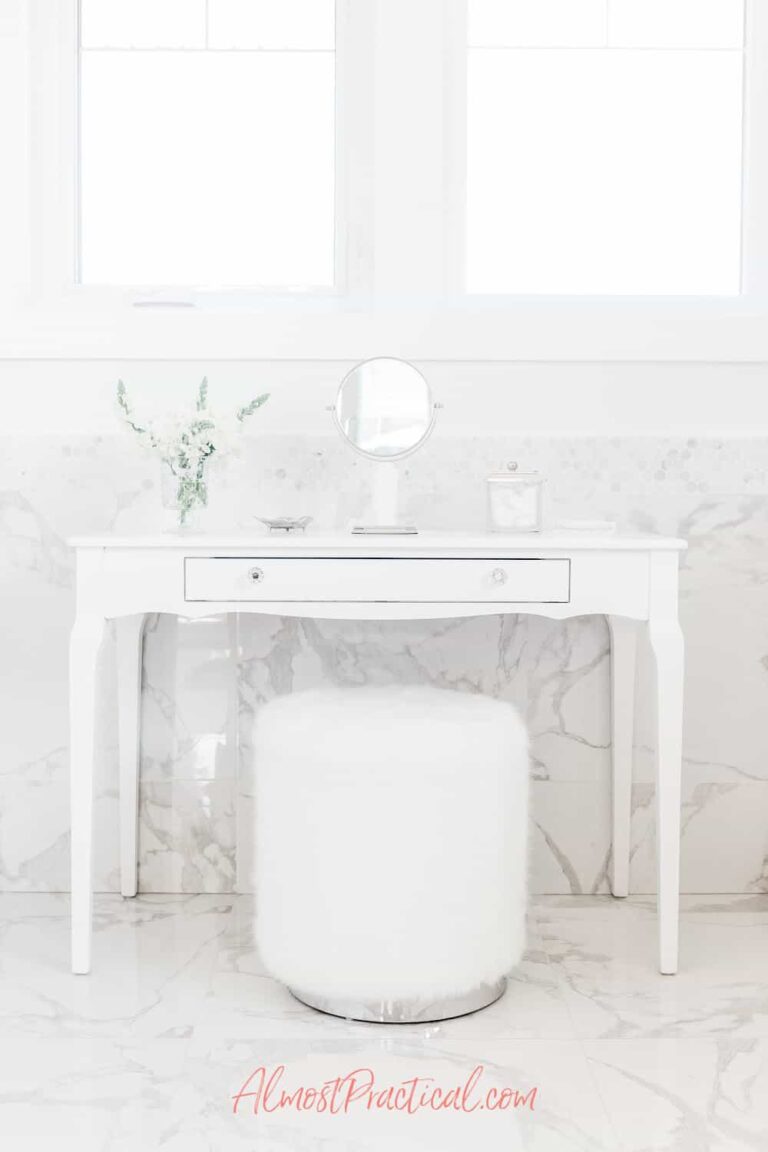The Beginner’s Guide to a More Organized Life
This post may contain affiliate links which means I make a commission if you shop through my links.
Disclosure Policy
Have you ever noticed that when you run into someone that you haven’t seen for awhile and ask how they have been – the answer is usually “I’ve been busy.”
Life is busy.
That is because we have:
- too much to do,
- too much information to consume,
- too much stuff to manage,
- people that need our time, and
- lots of things that we really want to get to.
By trying to do it all we end up wasting precious time that we can never get back.
The 24 hours that we have in each day is finite.
We can’t make more hours.
But we can improve the way that we use the time we have.
We can free up our time by living a more organized life.
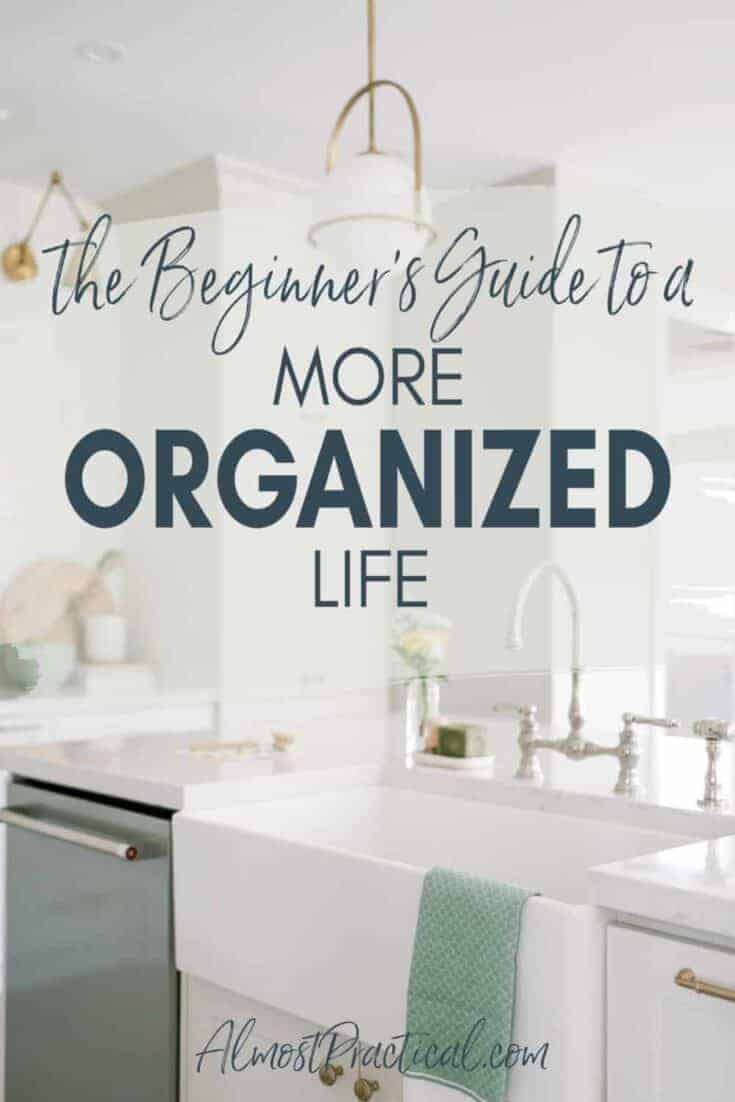
What Is Organization?
Most people think of organization as putting things away or decluttering your home or workspace.
But that is a misconception.
Living a more organized life is about improving your personal productivity.
Remember, your goal is to free up more time.
To do that you need to create habits, routines, and systems for all the things you do on a regular basis.
Your method of organizing your home or workspace has to support your habits and routines.
Read about what organizing really means here.
How to Get Started With Personal Productivity
Since organization begins with personal productivity – working to organize your time is the place to start.
The key is to be intentional with what you plan to do and when you plan to do it.
To keep it simple, all you need is a piece of paper where you can plan out what you are going to do today.
But, it is often more helpful to use some kind of paper or electronic planner to keep yourself organized.
There are so many great options to choose from.
Personally, I use a mix of Erin Condren planners and my Apple Calendar to manage my appointments and time block my day.
And to keep track of my personal to do list – I simply use my Apple Reminders app.
Tips for Organizing Success
Use your planner to schedule out all the personal and work related things you need to do every single day.
This includes home organization projects.
You need to allow yourself time in your schedule to organize.
No project is too small to schedule.
Think about it – organizing your junk drawer could take an hour – if you let it.
But if you schedule a half hour in for that task – you are setting yourself up to successfully get it done in half the time.
Of course, you should be realistic with how long a project should take.
But at the end of the day, you want to look back and be satisfied that you spent your time on the things that are most important to you.
Read my best organizing advice here.
Common Questions about Organization and Productivity (FAQ’s)
The hardest part about getting organized is getting started. Here are some common questions that people often ask.
1. Where should I start?
The place to start is ALWAYS with your schedule.
Find an uninterrupted hour or two of your time when you will be able to focus on organizing.
2. What project should I tackle first?
I always start with my biggest pain point.
What is the most disruptive thing in your day?
If you are missing bill due dates – then organize your paperwork and finances first.
If you can’t make a meal because your kitchen counters are too cluttered – than that might be the place to start.
3. When I start decluttering, I find I have a bigger mess on my hands. How do I fix this?
What you need is a plan.
In fact, you should make a plan for every project that you do.
Before starting, you know how much available time you have – so make a realistic estimate of what you can accomplish in that time.
If you want to clean out the pantry, organize one shelf each day until you get the job done.
It helps to write your plan down so you can pick up where you left off the day before.
4. What if I don’t finish the whole project in one sitting?
Depending on the size of the project, you shouldn’t even try to.
If you give yourself too much to do, you will become overwhelmed.
Better to break it down into small daily steps, so at the end of the day you feel you have made headway.
And be sure to measure your goal progress periodically so you can refine and adjust your process along the way.
5. I feel like the project is too big for me to handle. What can I do about that?
Sometimes, it is hard to organize alone.
So many obstacles can get in your way. You might:
- get distracted,
- have too much of an emotional attachment to the things that you want to declutter,
- not know if something is important or not,
- be indecisive as to where to put things or how to organize them,
- feel you don’t have enough time to complete the project.
If you find yourself spinning your wheels, one of the easiest things to do is get some help.
You can enlist your family’s help in decluttering your space – so that you don’t have to work alone and you can also delegate and work faster.
A good friend can help you make decisions about memorabilia.
And for items where you aren’t sure about the value or importance – you could consult with a professional (lawyer, accountant, appraiser) to find the information that you need.
Certainly, you can also consult with a professional organizer as well.
And be sure to SUBSCRIBE to the Almost Practical Organizing Newsletter – to get actionable tips right in your inbox.
The Last Thing You Need to Know About Getting Organized
Getting organized is all about the journey, not the destination.
We are always buying new things and purging old.
This requires us to rethink how we use our space on a continuous basis.
Carve out time daily to get your organizing projects done and you will feel more grounded and in control of the other parts of your life.
It’s always going to be a work in progress so take your time and don’t put too much pressure on yourself.
Happy organizing!



